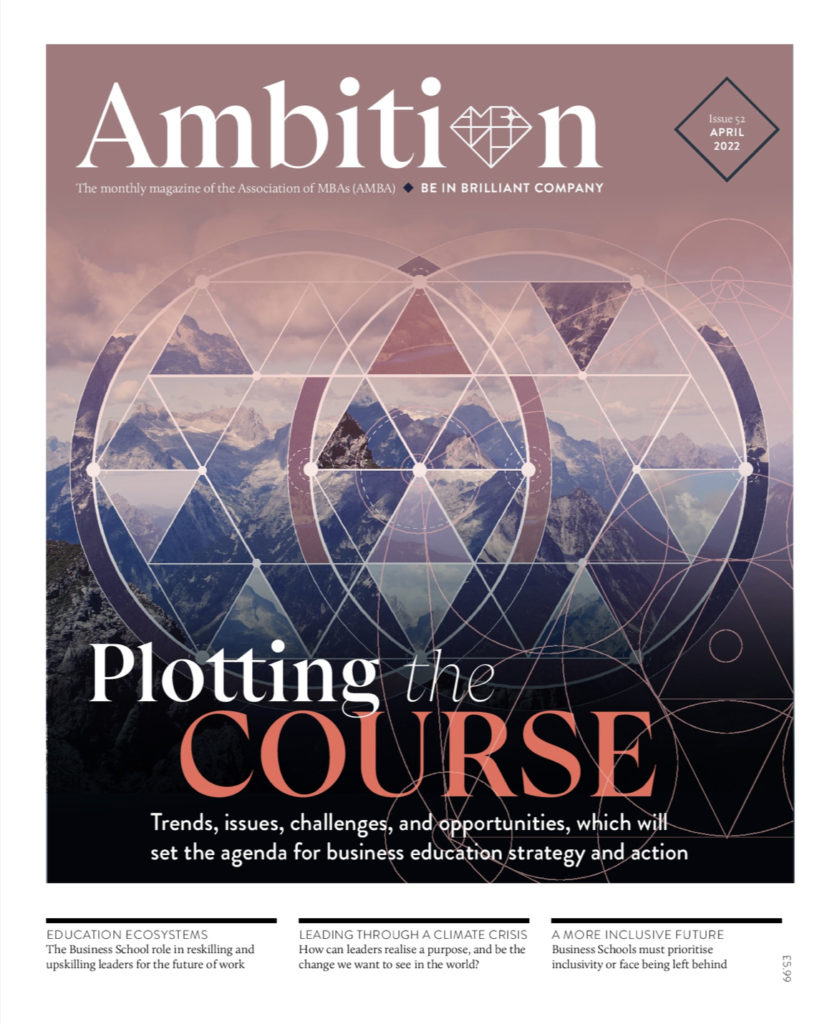The success of business schools is increasingly aligned to leadership efforts to become inclusive and develop a progressive strategy that has diversity at its core. Generation Z is calling for it and, with equality movements such as LGBTQ+ and BLM gaining momentum, it is imperative that business schools continue to meet these demands. Simply put: The winning formula is a diverse one.
Change is happening but at a pace that, historically, has been too slow across all sectors. With the momentum that has been generated, it is vital for schools to prioritise inclusivity or face being left behind.
Schools must look to a mix of backgrounds within their talent pool. Business school leaders, student recruitment, and HR must collaborate to build inclusive strategies that support diversity. This should focus on groups that may otherwise be marginalised.
Creating fair working environments
In an interactive panel session at the AMBA & BGA Business School Leaders Summit 2022, four experts shared their opinions on work that is being done to create, incorporate and develop culture, diversity, and inclusion practices in business schools, while campaigning for fair working environments around the world.
Laura Pacey, Product Director, UK, HE & OUP, McGraw Hill, posed a question to the panel, asking where barriers to the ‘cultural shift’ in business exist, and where the shift should start in order to achieve diversity, equity and inclusion – given that, so far, training programmes have not always been successful. She kicked off the discussion by making the point that ‘we certainly too often think that equity, diversity and inclusion are the same, but there are certain things to address within this definition.’
Sofia Skrypnyk, Head of Equity, Inclusion & Human Rights, C&A was first to share her insights. ‘The best way to fast-track efforts in equity and inclusion is to accept that there are no short cuts and no silver bullets for this agenda,’ she argued. ‘It’s a social justice agenda and requires lasting behavioural change. One of the problems is that in the corporate sector, we’re looking at this agenda as a series of events that are inspirational projects, rather than as a deep-rooted change that takes years.
‘The field of diversity and inclusion is relatively new, but over the past decade, there has been so much research, and a body of evidence on what works and what doesn’t. We must stop looking for the next hot topic and have patience; we can learn from insights in social science and social change management. A lack of data is a result of inequity, so explore any data that should accompany any intervention that will bring any change you want to see.’
Oluchi Ikechi D’Amico, Partner, Head of Innovation for Strategy & Transactions APAC, Capital Markets, EY, added: ‘One of the big things organisations need to do is focus on inclusion. When they think about diversity, equality, and inclusion they focus too much on diversity –where they are, where they want to get to and the targets they aspire to.
‘Simply put, we need to do more on inclusion, and this goes beyond training. It’s about the DNA of an organisation and belonging. This can be learned but cannot be [taught]. It happens through real dialogue, core values and a need for recognising there is a problem and that something needs to be done about it. Inclusion is something we speak about – but not something we fully understand. If it’s addressed, then we should have a diverse, representative workforce.’
Closing the session, Steve Butler, CEO, Punter Southall Aspire, Author of Inclusive Culture, Advisor to The Diversity Project, and CIPD Academic Member, added: ‘In my sector [financial services], we need to attract a different set of individuals and then create a culture where individuals can progress and train to make it through the organisations into senior roles. It’s a long-term play, but without the efforts we’re discussing, nothing will change.’








